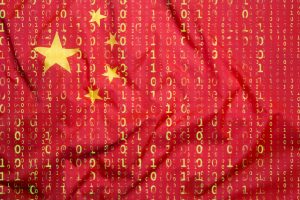Since coming to power in 2012, Xi Jinping’s administration has sought to stamp out corruption and reorder China’s political economy. But more than 10 years on, these tasks have received new urgency amid an intensifying rivalry with the United States. Now, to reduce its continued reliance on foreign technology, the Chinese Communist Party (CCP) is betting on an unproven formula: discipline and control.
Since launching an anti-graft campaign in October 2021, dozens of finance officials have been investigated by the Central Commission for Discipline Inspection, the CCP’s anti-corruption authority. The targets have included Cai Esheng, former vice chairman of the China Banking and Insurance Regulatory Commission, the country’s banking watchdog, who was expelled from the CCP in January 2022.
China’s capital markets regulator, the China Securities Regulatory Commission (CSRC), has also been targeted. Purged officials include the CSRC’s former head of issuance Tong Daochi, who was sentenced to death in June 2022, and former CSRC accounting director Wang Zongcheng, expelled from the CCP in February 2023. The crackdown has likewise swept up central bank officials, including former deputy governor Fan Yifei in November 2022.
Alongside regulators, commercial banking executives have also been probed for suspected violations of discipline. Former China Merchants Bank president Tian Huiyu was brought under investigation in April 2022, followed by former Bank of China chairman Liu Liange in February this year, as well as former Everbright Bank chairman Li Xiaopeng earlier this month.
This long list of cases reflects a critical issue for Beijing: the supposedly “disorderly” way that capital has been allocated in China’s economy. But while corruption and capital inefficiencies have long been a target of Xi’s administration, the present investigations have taken on a new urgency. In particular, U.S. sanctions and export controls are raising Beijing’s ambitions for greater tech self-sufficiency.
Against this backdrop, Beijing’s finance sector crackdown has recently turned its attention to key financiers of technological development. Of particular note is Bao Fan, founder of tech-focused investment bank China Renaissance, who has been detained since February. He is believed to be cooperating with a probe into China Renaissance’s former president Cong Lin, who previously worked with Li Xiaopeng at state-owned ICBC.
These investigations follow a separate crackdown since 2022 on China’s semiconductor industry, which has targeted numerous executives at the China National Integrated Circuit Industry Investment Fund or “Big Fund.” As part of that crackdown, Xiao Yaqing, the minister overseeing the Big Fund, was removed from office last July and expelled from the party in December.
Concurrent to these probes and purges, Beijing is dramatically changing the way it governs technology investments. At last month’s “Two Sessions,” a major bureaucratic reorganization was announced, encompassing both the technology and finance apparatuses. A new central commission now places oversight of science and technology directly under the CCP’s Central Committee.
Under the new Central Science and Technology Commission, the Ministry of Science and Technology (MoST) is being slimmed down but given greater responsibilities. By transferring less critical tasks to other departments, Beijing intends for MoST to focus on facilitating the development of core technologies, thereby boosting China’s self-sufficiency drive.
In finance, meanwhile, a new National Financial Regulatory Administration is assuming ultimate powers over finance activities, except for capital markets. Those will remain the purview of the CSRC, which is being turned from a public institution into a government body, thereby expanding its administrative clout (but lowering the salaries of its officials).
Taken collectively, these governmental reforms signal the top leadership’s discontent with the economic status quo, as it strives to lower systemic risks and allocate capital more strategically. It is a striking acknowledgement that the existing model has performed inadequately, and also reflects changes to the external environment, primarily worsening ties with the United States.
A frank assessment of the situation was included in Beijing’s recent reform plan. “The organization and functional configuration of the party and state were not fully compatible with the requirements of comprehensively building a modern socialist country and promoting the great rejuvenation of the Chinese nation,” the document declared.
There are undoubtedly lingering inadequacies in key areas of China’s economic governance, including corruption and wastage. But whether this major government overhaul will help to alleviate those issues remains uncertain. According to Financial Times sources, several of China’s most successful chip champions are now gaining easier access to subsidies, despite the overcapacity problems that typify such handouts.
Above all, Beijing’s latest actions provide no new incentive structure for promoting technological dynamism. Instead, the party is returning to its Leninist DNA of discipline and control, betting that this will whip key areas of R&D into shape. But it is an unproven formula for advancing China’s development of core technologies, one that risks sending a chill across the country’s tech and finance sectors.
































